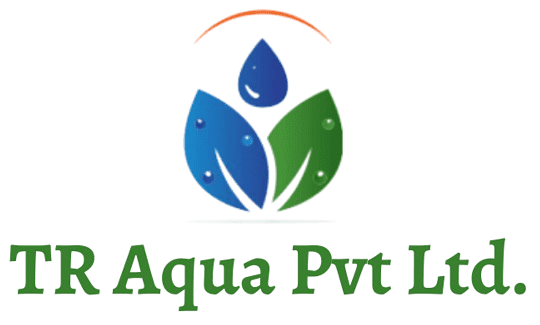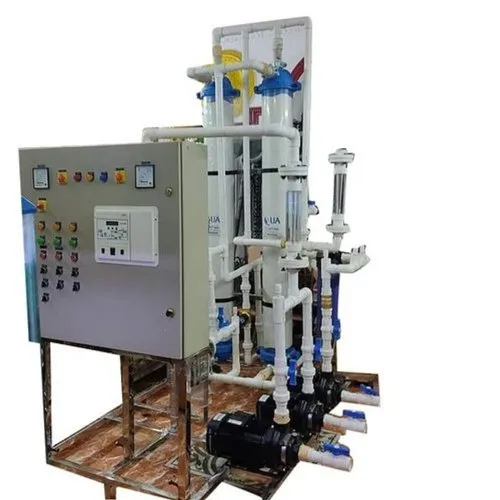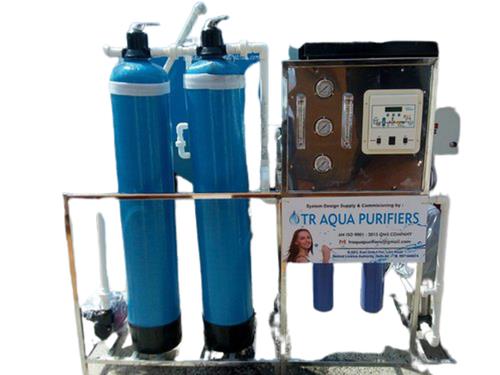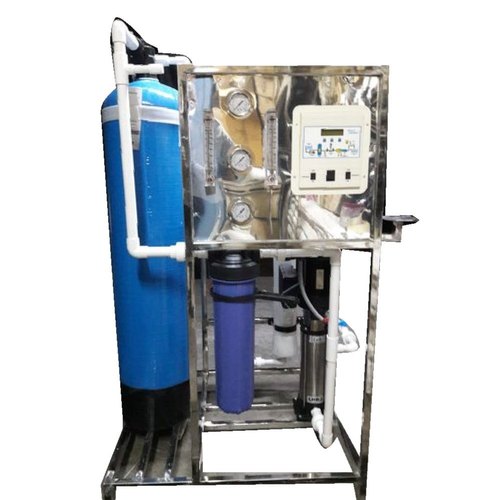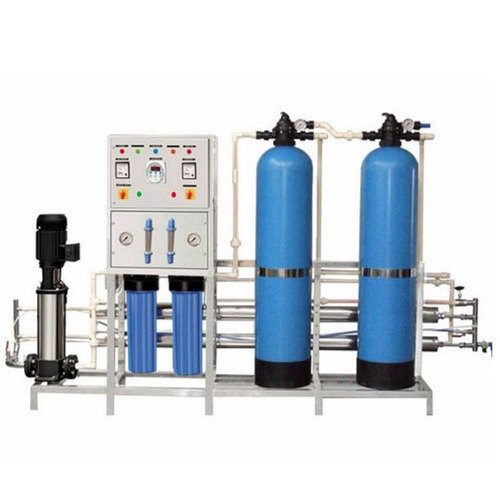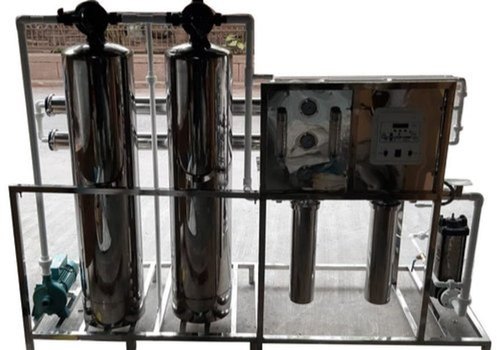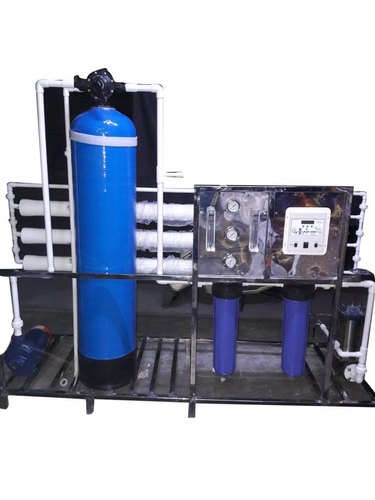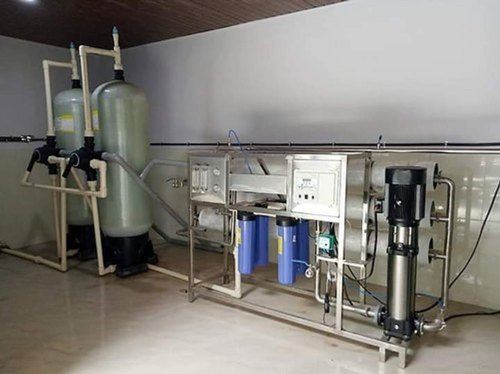Industrial RO Plant
Industrial RO Plant Manufacturer
TR Aqua Private Limited is a reputable manufacturer and supplier of Industrial RO plants in India. They offer a wide range of RO systems designed to meet the specific water purification needs of various industries.
Features of TR Aqua’s Industrial RO Plants:
- Reverse osmosis technology for effective removal of dissolved salts, minerals, and contaminants from water
- Customizable designs to suit different industrial applications and water quality requirements
- High-efficiency membranes and pre-treatment systems for optimal performance
- Automatic operation with minimal maintenance required
- Compact and modular design for easy installation and scalability
- Compliance with industry standards and regulations
Applications of TR Aqua’s Industrial RO Systems
TR Aqua’s industrial RO plants are suitable for a variety of applications, including:
- Boiler feed water treatment
- Cooling tower water treatment
- Process water purification for pharmaceutical, food and beverage, and electronics industries
- Wastewater reclamation and reuse
- Desalination of brackish or seawater
Why Choose TR Aqua for Your Industrial RO Needs?
- Experienced team of engineers and technicians for design, installation, and support
- Use of high-quality components and materials for durability and reliability
- Competitive pricing and timely delivery of projects
- Commitment to customer satisfaction and after-sales service
Our Products
| Brand | TR AQUA |
| RO Capacity | 500 Liter/hour |
| Material | FRP |
| Types Of Machines | industrial RO plant |
| Operation Mode | Automatic |
| Max Water Recovery Rate | 40-50% |
| Number Of Filtration Passes | 5 |
| Number Of Membranes in Ro | 2 |
| Minimum Order Quantity | 1 |
Features:
- Automatic Operation
- Design at High quality standards
- Design on the principle of Reverse Osmosis
- Low Noise, Low Power Losses & Low Water Rejection Rate
- All RO plants with Industrial standard capacities
Features:
- Usage/Application: Water Purification.
- RO Capacity: 400LPH.
- Material: FRP.
- Max Water Recovery Rate: 60-65 %
- Automation Grade: Automatic.
- Voltage: 240-445V.
Features:
- Capacity: 500 LPH.
- Automatic Grade: Automatic.
- Brand/Make: Aqua Soft.
- Voltage: 240 V.
- Weight: 210 kg.
- Finishing: Powder coated.
Features:
- Usage/Application: Water Purification.
- Brand: RCI.
- RO Capacity: 800 LPH.
- Max Water Recovery Rate: 55-60 %
- Automation Grade: Semi-Automatic.
- Voltage: 380 V.
- Power Source: Electric.
Features:
- Max Water Recovery Rate 50-55 %
- Voltage 220 V.
- Chiller Cooling Capacity 1 ton.
- Frequency 50 Hz.
- Number of Filtration Passes 2.
- Power Source Electric.
- Capacity 1000 LPH.
Features:
- Automatic Operation
- Design at High quality standards
- Design on the principle of Reverse Osmosis
- Low Noise, Low Power Losses & Low Water Rejection Rate
- Designed for continued operations for maximum efficiency utilization
FAQ's
Industrial and commercial RO plants differ primarily in scale, purpose, and complexity. Industrial RO systems are large-scale, high-capacity units designed for critical applications like boiler feed water or seawater desalination, requiring extensive customization and maintenance. They handle more complex water quality issues and have higher costs. In contrast, commercial RO plants are smaller, standardized units suited for providing high-quality drinking water in businesses like restaurants and offices. They are simpler, more cost-effective, and designed for easier maintenance and operation.
TR Aqua Private Limited distinguishes itself from other RO plant manufacturers in India through several key attributes:
Customization and Flexibility: TR Aqua is known for its ability to tailor RO solutions to specific customer needs, offering a wide range of customizable options for various industrial and commercial applications.
Technology and Innovation: The company emphasizes advanced technology and innovative designs, ensuring their RO plants incorporate the latest advancements in filtration and purification technologies.
Quality and Reliability: TR Aqua focuses on high-quality components and stringent quality control processes, aiming to provide reliable and durable RO systems that meet international standards.
Comprehensive Support: They offer extensive post-installation support, including maintenance services and technical assistance, which can enhance the overall customer experience.
Competitive Pricing: TR Aqua strives to provide cost-effective solutions without compromising on quality, making them a competitive choice in the market.
Overall, TR Aqua Private Limited’s commitment to customization, technological innovation, quality, and support helps set them apart from other RO plant manufacturers in India.
Industrial RO (Reverse Osmosis) plants are used across various industries for their ability to produce high-purity water by removing contaminants from raw water. Here are typical applications in different industries:
1. Power Generation
- Boiler Feed Water: RO systems produce high-purity water for boilers to prevent scaling and corrosion.
- Cooling Water: Used to treat water for cooling systems, reducing the risk of fouling and scaling.
2. Pharmaceuticals
- Purified Water: RO plants provide water for drug formulation and manufacturing processes, meeting stringent purity standards.
- Water for Injection (WFI): RO systems are part of the process to produce WFI, used in injections and intravenous solutions.
3. Food and Beverage
- Product Water: Treats water for use in food and beverage production, ensuring safety and quality.
- Process Water: Used in various stages of food processing to ensure clean and safe water is used.
4. Chemical Manufacturing
- Process Water: RO systems provide high-purity water for chemical reactions and formulations.
- Feed Water for Reactors: Ensures that contaminants do not affect the quality and efficiency of chemical reactions.
5. Textiles
- Dyeing and Finishing: Purified water is essential for dyeing and finishing processes to achieve accurate color and avoid contamination.
- Cooling Systems: Treated water is used in cooling systems to prevent scale buildup and equipment damage.
6. Electronics
- Ultrapure Water: Essential for cleaning and manufacturing electronic components where even trace contaminants can affect performance.
- Process Water: Used in various stages of semiconductor and electronic device production.
7. Metallurgy
- Process Water: RO systems provide clean water for metal plating, cooling, and other processes.
- Boiler Feed Water: Prevents scaling and corrosion in industrial boilers used in metal processing.
8. Oil and Gas
- Water Injection: RO-treated water is used in enhanced oil recovery processes.
- Cooling Water: Ensures clean water for cooling systems in refineries and other facilities.
9. Mining
- Process Water: Treats water used in mineral extraction and processing to prevent contamination and improve efficiency.
- Environmental Compliance: Used to manage and treat water to meet environmental regulations.
10. Municipal and Wastewater Treatment
- Desalination: Treats brackish or seawater to provide fresh water for municipal supply.
- Recycling and Reuse: Treats wastewater to make it suitable for reuse in industrial processes or other applications.
In each of these industries, industrial RO plants play a crucial role in ensuring water quality, protecting equipment, and maintaining operational efficiency.
Maintaining industrial RO (Reverse Osmosis) plants is crucial for ensuring their optimal performance, longevity, and efficiency. The maintenance requirements can vary based on the plant’s size, complexity, and application, but generally include the following key aspects:
1. Regular Inspection and Monitoring
- Visual Inspections: Check for leaks, corrosion, or physical damage in the system components.
- Performance Monitoring: Regularly monitor key parameters such as pressure, flow rates, and water quality to ensure the system is operating within specified ranges.
2. Membrane Maintenance
- Cleaning: Periodically clean the RO membranes to remove fouling, scaling, and biofilm. Cleaning frequency depends on the feed water quality and membrane performance.
- Replacement: Replace RO membranes as needed when performance declines or they become damaged.
3. Pre-Treatment System Maintenance
- Filters and Cartridges: Regularly replace or clean pre-treatment filters and cartridges to prevent clogging and protect the RO membranes.
- Chemical Dosing: Ensure proper dosing of chemicals for scale inhibition, anti-fouling, and corrosion control. Monitor and adjust chemical dosing as required.
4. System Calibration
- Pressure and Flow Sensors: Calibrate pressure and flow sensors to ensure accurate readings and system control.
- Control Systems: Regularly check and calibrate automated control systems and alarms to ensure they function correctly.
5. Cleaning and Sanitation
- System Flush: Periodically flush the system with clean water to remove residual chemicals and contaminants.
- Sanitation: Perform regular sanitation of the system, including tanks, pipes, and valves, to prevent microbial growth and contamination.
6. Pump and Valve Maintenance
- Inspection and Lubrication: Inspect and lubricate pumps and valves to ensure smooth operation and prevent wear and tear.
- Replacement: Replace any faulty or worn-out pumps and valves to maintain system efficiency.
7. Data Logging and Documentation
- Record Keeping: Maintain detailed records of maintenance activities, performance data, and any issues encountered. This helps in tracking system performance and identifying trends.
8. Training and Safety
- Operator Training: Ensure that operators are trained on proper maintenance procedures and safety protocols.
- Safety Checks: Regularly check safety devices and emergency systems to ensure they are operational.
9. Emergency Preparedness
- Contingency Plans: Develop and update emergency response plans for potential system failures or water quality issues.
- Spare Parts: Keep essential spare parts and tools readily available to address any unexpected breakdowns.
Regular and proactive maintenance helps in minimizing downtime, extending the lifespan of the RO plant, and ensuring consistent water quality. Following a well-structured maintenance schedule and addressing issues promptly are key to maintaining the efficiency and reliability of industrial RO systems.
